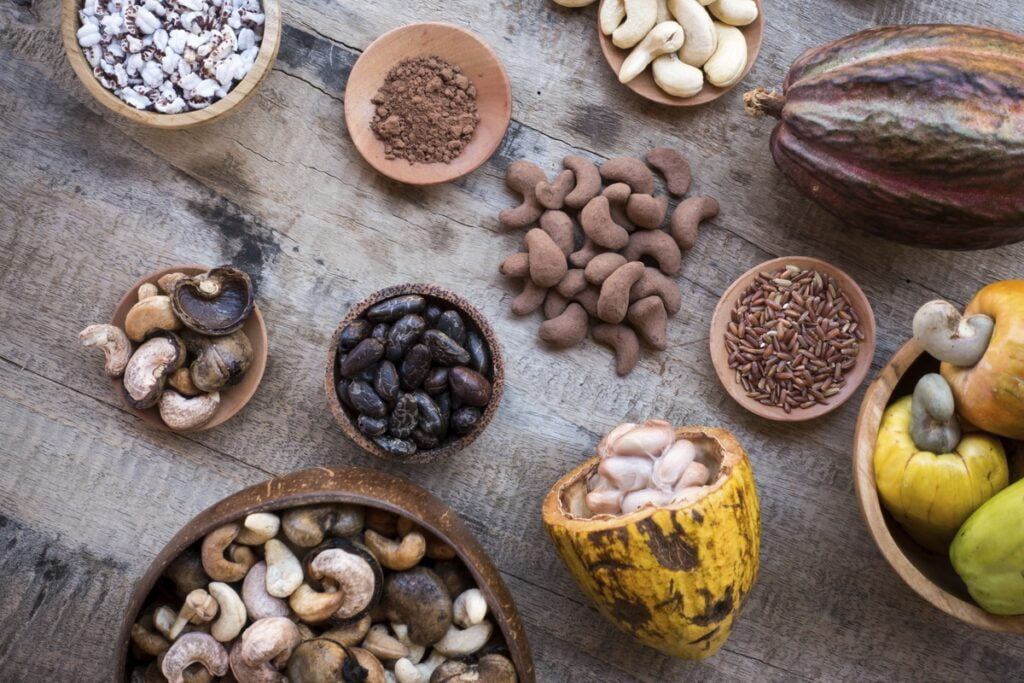Cocoa has been enjoyed for centuries for its rich flavor and potential health benefits. A growing body of research has recently suggested that cocoa flavanols, a natural plant compound found in cocoa beans, may have anti-inflammatory and immune-boosting properties. This article will explore the science behind these claims and their potential impact on human health.
What are Cocoa Flavanols?
Cocoa flavanols are a type of plant compound that is found in cocoa beans, as well as other foods like tea, grapes, and berries. Flavanols are part of a more prominent family of plant compounds called flavonoids, known for their antioxidant properties. Antioxidants help protect the body’s cells from damage caused by free radicals, which can contribute to chronic inflammation and disease.

The Link Between Inflammation and Disease
Chronic inflammation is common in many chronic diseases, including heart disease, diabetes, and cancer. Inflammation is a natural response of the immune system to injury or infection, but when it becomes chronic, it can damage healthy tissues and contribute to disease development. One of the primary causes of chronic inflammation is an unhealthy diet.
Anti-Inflammatory Properties of Cocoa Flavanols
Several studies have suggested that cocoa flavanols may have anti-inflammatory properties. A 2018 study published in the journal Nutrients found that consuming high-flavanol cocoa for eight weeks significantly reduced several markers of inflammation, including C-reactive protein (CRP) and interleukin-6 (IL-6). Another study published in the Journal of Nutrition found that consuming a high-flavanol cocoa beverage for six weeks significantly reduced several markers of inflammation in healthy adults.
In another study, researchers investigated the effects of cocoa on individuals with metabolic syndrome, a group of conditions that increase the risk of heart disease and type 2 diabetes. The study found that consuming cocoa flavanols for six weeks significantly reduced markers of inflammation and oxidative stress, which are both associated with metabolic syndrome.
Immune-Boosting Properties of Cocoa Flavanols
In addition to their anti-inflammatory properties, cocoa may also have immune-boosting properties. A study published in the Journal of Nutrition found that consuming a high-flavanol cocoa beverage for four weeks significantly increased T-cell activation and decreased natural killer cell activity in healthy adults. T-cells are an essential immune system component that helps identify and destroy infected or cancerous cells. In contrast, natural killer cells help to defend against viruses and tumors.

Potential Health Benefits of Cocoa Flavanols
While more research is needed to understand cocoa flavanols’ impact on human health fully, the current evidence suggests that cocoa may have several potential health benefits. These include:
- Reducing inflammation: As discussed above, cocoa flavanols may help reduce inflammation in the body, a common factor in many chronic diseases.
- Improving heart health: Cocoa may help to improve heart health by reducing blood pressure, improving blood flow, and reducing the risk of blood clots.
- Enhancing brain function: Some studies have suggested that cocoa flavanols may help to enhance brain function by improving blood flow to the brain and reducing oxidative stress.
- Boosting the immune system: As discussed above, cocoa may have immune-boosting properties, which may help to improve overall health and reduce the risk of infection and disease.
Conclusion
Cocoa flavanols are a promising area of research for their potential health benefits. While cocoa may not be a magic bullet for preventing or treating disease, incorporating cocoa flavanol-rich foods into a healthy diet may offer several potential health benefits.
It’s important to note that not all cocoa products are created equal regarding flavanol content. Processing methods like roasting, alkalinization, and conching can reduce cocoa products’ flavanol content. To maximize your flavanol intake, look for minimally processed cocoa products like cocoa powder or dark chocolate with a high percentage of cocoa solids.
As with any dietary changes, it’s always a good idea to consult a healthcare professional before making significant changes to your diet. They can help you determine whether incorporating more cocoa-flavanol-rich foods into your diet is appropriate for your health needs.
In conclusion, while more research is needed to fully understand cocoa flavanols’ impact on human health, the current evidence suggests that cocoa flavanols may have several potential health benefits, including reducing inflammation, improving heart health, enhancing brain function, and boosting immune system. Incorporating more cocoa-flavanol-rich foods into your diet may be a delicious way to support your overall health and well-being.
FAQs
Q: What are cocoa flavanols, and how are they different from other types of flavonoids?
A: Cocoa flavanols are a type of flavonoid, a group of plant compounds known for their antioxidant properties. Flavanols are a subclass of flavonoids that are particularly abundant in cocoa beans and other foods like tea, grapes, and berries.
Q: What are some potential health benefits of cocoa flavanols?
A: While more research is needed to understand cocoa flavanols’ impact on human health fully, the current evidence suggests that cocoa may have several potential health benefits. These include reducing inflammation, improving heart health, enhancing brain function, and boosting the immune system.
Q: What are some potential dietary sources of cocoa flavanols?
A: Cocoa flavanols are most abundant in minimally processed cocoa products like cocoa powder and dark chocolate, with a high percentage of cocoa solids. Other potential dietary sources of flavanols include tea, grapes, and berries.
Q: Are all cocoa products equally rich in flavanols?
A: No, processing methods like roasting, alkalinization, and conching can all reduce the flavanol content of cocoa products. To maximize your flavanol intake, look for minimally processed cocoa products like cocoa powder or dark chocolate with a high percentage of cocoa solids.
Q: Is it safe to consume large amounts of cocoa flavanols?
A: While cocoa flavanols are generally considered safe, consuming vast amounts of cocoa products like chocolate can lead to excess calorie intake and potentially adverse health effects. As with any dietary changes, it’s always a good idea to consult a healthcare professional before making significant changes to your diet.
